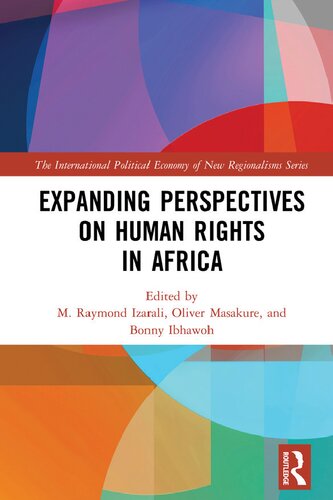

Most ebook files are in PDF format, so you can easily read them using various software such as Foxit Reader or directly on the Google Chrome browser.
Some ebook files are released by publishers in other formats such as .awz, .mobi, .epub, .fb2, etc. You may need to install specific software to read these formats on mobile/PC, such as Calibre.
Please read the tutorial at this link: https://ebookbell.com/faq
We offer FREE conversion to the popular formats you request; however, this may take some time. Therefore, right after payment, please email us, and we will try to provide the service as quickly as possible.
For some exceptional file formats or broken links (if any), please refrain from opening any disputes. Instead, email us first, and we will try to assist within a maximum of 6 hours.
EbookBell Team

4.1
20 reviewsThis book draws attention to emerging issues around the rights of minorities, marginalized groups, and persons in Africa. It explores the gaps between human rights provisions and conditions, showing that although international human rights principles have been embraced in the continent, various minority groups and marginalized persons are denied such rights through criminalization and persecution.
African countries have a good record of signing and ratifying international and regional rights instruments but the political will and capacity for enforcing these with respect to minorities remain weak. International contributors to the book provide new perspectives on the rights of marginalized and minority groups in different parts of Africa and the extent to which they are deprived or denied entitlement to the universality and equality articulated in law. The authors show that human rights, while having come of age as a moral ideal, has not been fully entrenched in practice towards groups such as children, indigenous populations, the mentally ill, persons with disabilities, and persons with albinism.
This volume is geared toward scholars, students, human rights groups, policy makers, social workers, international organizations, and policy makers in the fields of criminology, security studies, development studies, political science, sociology, children studies, social psychology, international relations, postcolonial studies, and African Studies.